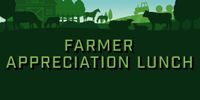This year Ramadan, the holy month of fasting, started on Monday, March 11th and during this time Muslims around the world will refrain from eating and drinking from dawn until sunset, avoid impure thoughts, and bad behavior until the end of Ramadan, which is estimated to be on April 9th, according to the lunar, Islamic calendar, this depends on the sighting of the new moon.
Winkler's Zahid Zehri explained further.
"Ramadan is not about only refraining from food or even from water. It's about the more spiritual. It's spiritually uplifting, training yourself to connect more with God, connect with your faith, making it stronger and also serving the community through charity, through donations, to be patient and control your anger, stay healthy, and bring discipline into your life."
 Zahid and Shaista Zehri
Zahid and Shaista ZehriWinkler's Adil Qureshi is a Cyber Security Specialist at Valley Fiber, and he said coming from a Muslim country where work hours were reduced during the month of Ramadan to accommodate the holy month of fasting, it is an adjustment coming to Canada, where many are not aware of the effects fasting from dawn til dusk, and praying many times during the day, has on Muslims and their productivity, as often there is very little time for sleep.
He drinks a cup of coffee before the call to prayer before dawn before heading to work, where he will not eat or drink anything until the sun sets.
"When we finish work, we go home, we have a couple hours. Some people sleep for a couple hours, and some people get busy cooking, cleaning and whatnot. Then we break our fast, and then we have an hour, and then we have to go to mosque for prayers. You keep praying until like 11:00 pm and then you get home, then you prepare supper, have food, and then by the time you go to bed, you're looking at 12:30-1am. Some people continue prayers, it depends. It's different for different people, so students they get probably around four- or five-hours sleep, or something like that."
 Adil Qureshi at Morden Multicultural Winterfest. A time people can learn about different countries and the people living in the Pembina Valley.
Adil Qureshi at Morden Multicultural Winterfest. A time people can learn about different countries and the people living in the Pembina Valley.He added, for students, like his brothers and sisters in school, there are challenges staff and students may want to be aware of.
"They are doing sports like gym during fasting. They are doing mile run. So, imagine a person who's fasting and who can't drink water. Teachers have to understand they can't do gym. I know it's a subject they have to take, and teachers might be concerned, 'How can this student not be participating in gym for a month?' I don't know how to make it work, but you've got to think about it, because the person is fasting and how do you expect the person who's fasting to run and get involved in all activities the other students are also participating in, who can eat and drink?"
Zehri said everyone has their own way of practicing the Muslim faith. There are allowances for travelers, for those who are sick and for those menstruating. These people may not be able to participate in the fasting from food and water but are still able to participate in prayers and charity work. He said his productivity increases during this time as he is not taking breaks to eat but admitted for those working shift work or in labour intensive jobs it is very difficult for others. He said it could be as simple as an employer gathering staff members together to help them better understand why their coworker is more tired, slower or has dry lips, it's because they are fasting.

"People or an employer and say, 'OK, this is your choice to have a fasting. I didn't compel you to do it, because you are getting the same pay other employees are being paid, so I'm expecting you to have the same productivity.' I think it is a very legitimate ask from the employers to the employees. But I think we are a human society, right? We do accommodate those requests and consider all the different things people are going through, because if you are not paying attention to what the people believe, if you're not paying attention to what the people need, then definitely productivity will be lower and maybe the loyalty will not be there."
He explained further.
"If your employer decreases the hours from 8hrs to 5hrs, you will never leave this company because you are going to stay there because you know they understand me. They accommodated my work schedule and he's going to recover these three hours, which he lost here, in the next month. He will take more shifts, more work to make sure that he is not losing or behind on any assignment."
He noted this time can be considered a month of training for the rest of the year. For many, it can be difficult and to say something to those around them would be to show off or to draw attention to themselves, which is discouraged by the prophets.
Ramadan is estimated to end April 9th, Zehri described what happens then.
"Eid ul Fitr (Feast day) is the day when Muslims conclude the month or Ramadan. Recognizing that the Islamic calendar is lunar and allows employers to make space for supporting Muslims at work. Employers can understand that Muslims won’t know the exact date upon which Eid will fall (as this depends on the sighting of the new moon). Eid is the festival that marks the end of Ramadan.
This means many people may need to request time off at relatively short notice and others may request a range of 2-3 days off to make sure they will be off work at the right time.
For more flexible working arrangements, where organizational needs and service delivery permits allow, employees could provisionally book a range of 2-3 days off and then work the days outside of where Eid lands. A pragmatic approach and open dialogue with employees are essence at the workplace."
This month, Zehri is asking employers, teachers and all people to be aware of those of the Muslim faith and to be understanding.





















